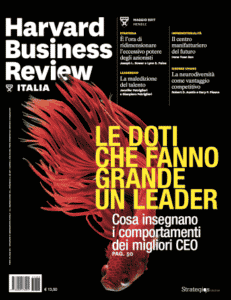
Artificial Intelligence is already among us Why we should not be afraid of it
6 April 2018
Questions, a precious tool to be used with the right technique
25 May 2018Diversity Management, the challenge of inclusion

Diversity is one of the core values of our time. Diversity is culture, richness, perspective, exchange, growth, necessity, and part of the story of every human being. Yet diversity still predominantly appears as a danger, a threat, an often insurmountable barrier that characterises our system of relationships. It is certainly much more ‘restful’ and safe to deal with what we already know, with people with whom we recognise ourselves in tried and tested situations. But how long can this last? And with what result?
Diversity (from the Latin divertere: to turn elsewhere, to deviate) is a concept with a double meaning. It represents the unfamiliar, the thing or person that takes a path that is not our own, and this inevitably arouses fear or even constitutes a potential threat. This much-emphasised code, however, has the same etymological root as the word amuse, a concept that, on the contrary, disposes us to the world of curiosity, discovery and pleasure. Entering this world and fully understanding it in its possible dynamics is the management of a paradox.
In discourses on diversity, the theme of the relationship with the other or with others is generally addressed in an idealistic, superficial, consolatory manner, under the illusion that, by launching any programme aimed at the inclusion of a certain minority or simply reading a book on the subject, every problem can be solved. One is almost never touched by the realisation that each of us – regardless of the category we belong to – is in turn ‘another’.
Understanding this dynamic is comparable to a trip to an unknown country. We may feel like a new Gulliver who, on meeting the Lilliputians, laughs at their customs and habits, but, like Gulliver himself, shipwrecked on a later voyage, we may end up in the land of giants and, as dwarves ourselves, become the object of ridicule. In our own little universe, there are customs and traditions that are obvious and obviously right to us but, if we try to reflect on them, they are just as arbitrary and subjective as those of the other, even if we belong to the same culture, speak the same language, consume the same products. This is by no means a given.
Every time we enter into a relationship with the other, we are therefore faced with a choice: we can either consider him an antagonist and enemy or we can let ourselves be captured by the curiosity to get to know him. But, even in the latter case, things are not so simple. Well says Pessoa in his The Book of Disquiet: ‘… one of my first constant preoccupations is to understand how it is that there are souls that are not my soul, consciousnesses foreign to my consciousness, which seems to me the only one possible …’.
Our identity is defined as opposed to the characteristics we detect in the people around us. If we are to walk the path that leads us to discover the value inherent in diversity, whatever it may be, it becomes essential to accept that the game is first and foremost played on a deep and personal level. Listening, seeing and recognising the opportunities that this upheaval offers us in the context in which we live, be it company or society.
If we want to get out of the rhetoric on diversity and build not so much and not only often sterile ‘programmes’, but a new mindset that is genuinely open and willing, we must invest in our leadership skills: listening, empathy, the deep desire to understand the other. Getting involved, accepting the constructive management of conflict and that share of intolerance that is implicitly present every time we come into contact with the other. Facing diversity means being willing to be contaminated, rethinking oneself as a bearer of plurality, putting oneself in the shoes of the ‘stranger’, reminding oneself that measuring oneself with diversity inevitably implies making oneself known in one’s uniqueness.
It is common to see organisations that, even today, do not foster cooperation and integration. They more easily reward competition by incentivising individual rather than team strategies, roles and goals. Inclusion is the strategic direction in which we should aim to implement a serious diversity project. It should start with a careful introspection to understand one’s own reality, worldview, motivations and value structure. Within the organisation, this work helps us to discover, prevent and, if possible, resolve the existing barriers that generate conflicts involving men and women, but also different generations or ethnic groups, which in many cases can lead to real ideological battles.



